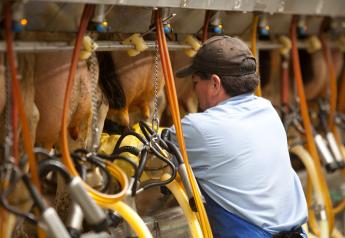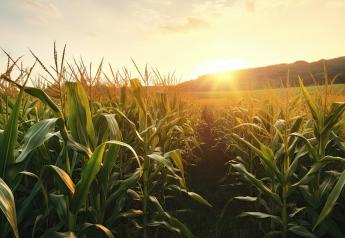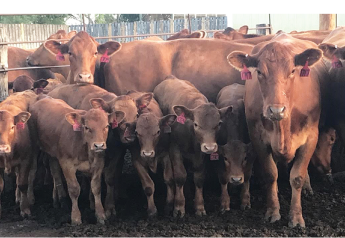Canola Waste for Cattle: Research Finds Benefits to Canola-Based Supplement
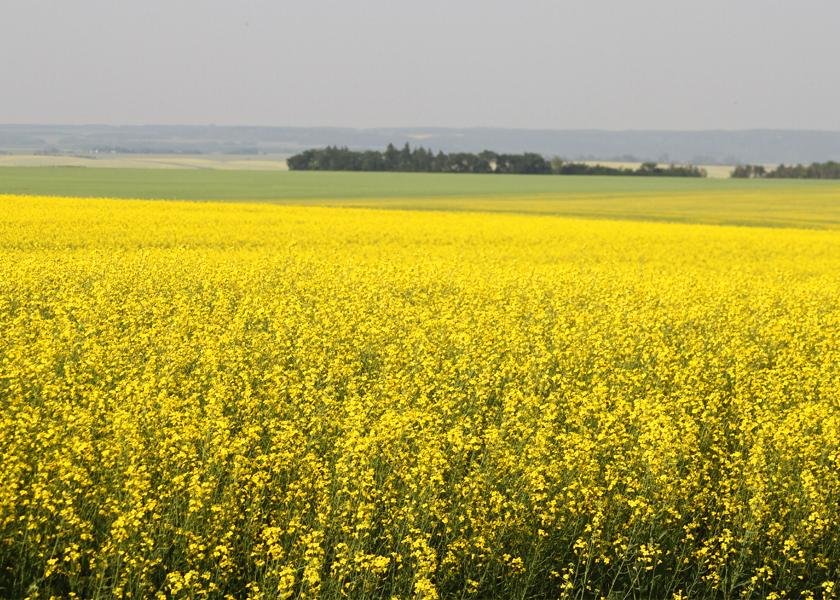
Pioneering an investigation into the potential use of discarded canola as a dietary supplement for pregnant cows, Erika Cornand, a graduate student at the University of Saskatchewan (USask), aims to enhance both their health and the well-being of their calves.
Canola seeds, when processed into pellet form, offer an easily administered fat supplement for inclusion in cows' diets, notes a recent article from the University of Saskatchewan. Cornand's primary objective is to determine if these canola seed-based pellets can positively impact cattle body condition and reproduction rates, while also establishing the optimal dosage for effectiveness.
Cornand, currently pursuing her master's degree in animal and poultry science at the College of Agriculture and Bioresources, is collaborating with her research supervisor, Bart Lardner, Ph.D., at the USask Livestock and Forage Excellence Centre (LFCE) in Clavet, Saskatchewan.
The Study
Utilizing the LFCE's expansive pastures and feeding facilities, the research team closely monitored 72 cows throughout their pregnancies over the past two years.
The cows were divided into three groups, each receiving varying doses of the canola supplement at the same stage of their pregnancies, the article explains. One group received no additional fat supplement, while the other two groups were provided with 150 and 300 grams of fat daily, respectively. The study meticulously recorded the cows' body weight and the quality and quantity of milk produced post-calving to evaluate the effects of the supplemental fat.
Cornand explains in the article, "Cattle can typically incorporate three to eight percent fat into their total diet before any adverse effects become common. Our aim is to determine if the positive effects on cow and calf performance observed in prior research can be replicated here and to identify the specific dosage where supplement benefits are maximized."
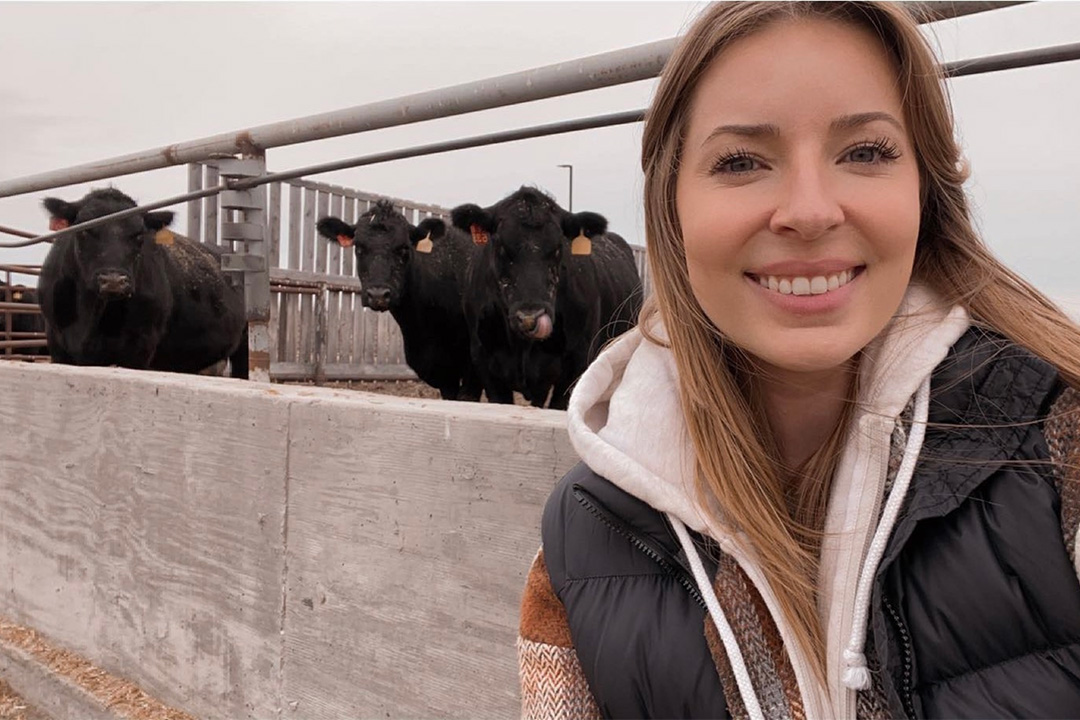
The cows received the trial canola-based supplement for 150 days before transitioning back to their regular diet.
Promising Preliminary Results
In the article, Cornand shares, "Our preliminary findings suggest that administering the canola seed-based pellet during the second and third trimesters of pregnancy improved both the body condition scores of the cows and their pregnancy rates."
This discovery holds promise for beef producers as well as grain farmers who may have canola to dispose of. Cornand emphasizes, "Instead of selling off-grade canola at discounted rates, grain producers may now have the opportunity to supply their product to cattle producers. This could yield benefits for the cows and their offspring, potentially leading to improved economic profitability," in the USask article.
The study also plans to explore how the additional fat in the mother's diet may induce genetic variations in her offspring.
Cornand adds, "We are wrapping up the second year of data collection for the cow portion of this study. The project will now shift to a phase where calves are weaned from their mothers and raised in feedlots at the LFCE following industry guidelines. We've collected additional data from all calves born during the study period, which will be analyzed to investigate genetic differences resulting from prenatal fat supplementation."
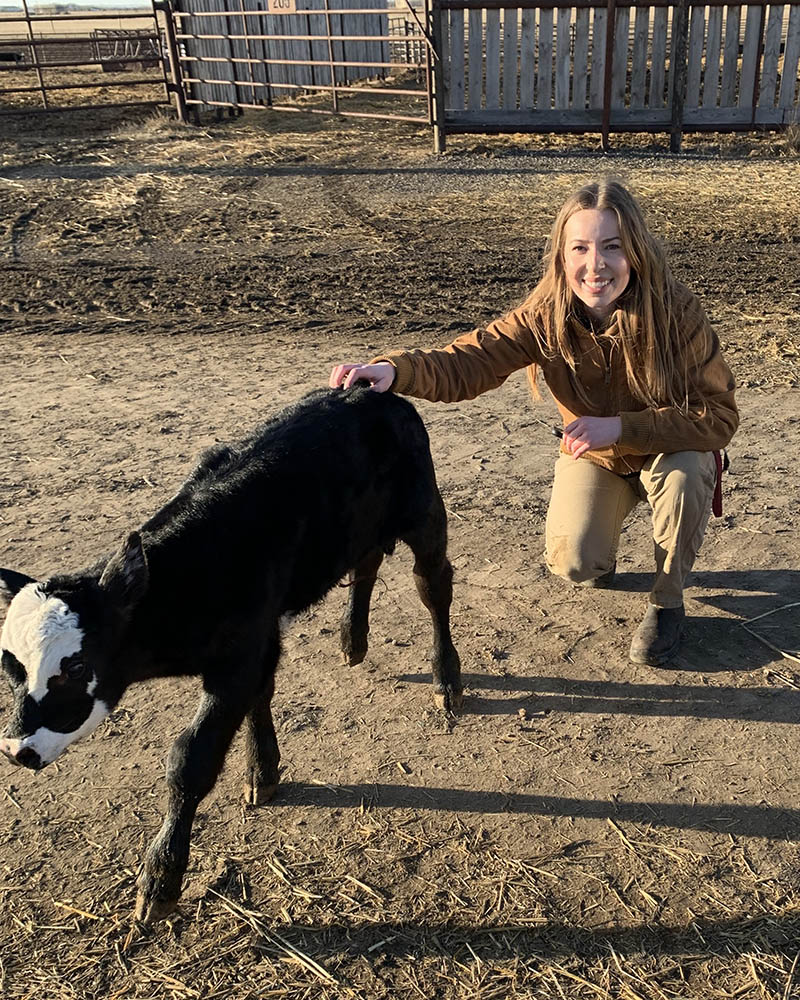
Cornand plans to complete her master's degree by Dec. 2023. However, the study will continue with the calf phase and genetic analysis over the next few years. Her preliminary research results have already earned her invitations to present at the American Society of Animal Science Conference and the Canadian Beef Industry Conference, with final results expected in 2026.
With prior experience as a dairy technician and during her undergraduate studies at the University of Alberta, Cornand aspires to help beef producers leverage ongoing research findings to improve the health of their herds.
"I want to be able to make a difference for producers, whether in the cow-calf, dairy, or feedlot sector,” Cornand adds. “My program equips me to tackle challenges that producers face and collaborate to investigate their causes, ultimately providing practical solutions."
The research project has received funding support from the Saskatchewan Canola Development Commission, the Beef Cattle Research Council, Alberta Beef Producers, the Saskatchewan Cattlemen’s Association and the Natural Sciences and Engineering Research Council of Canada.





